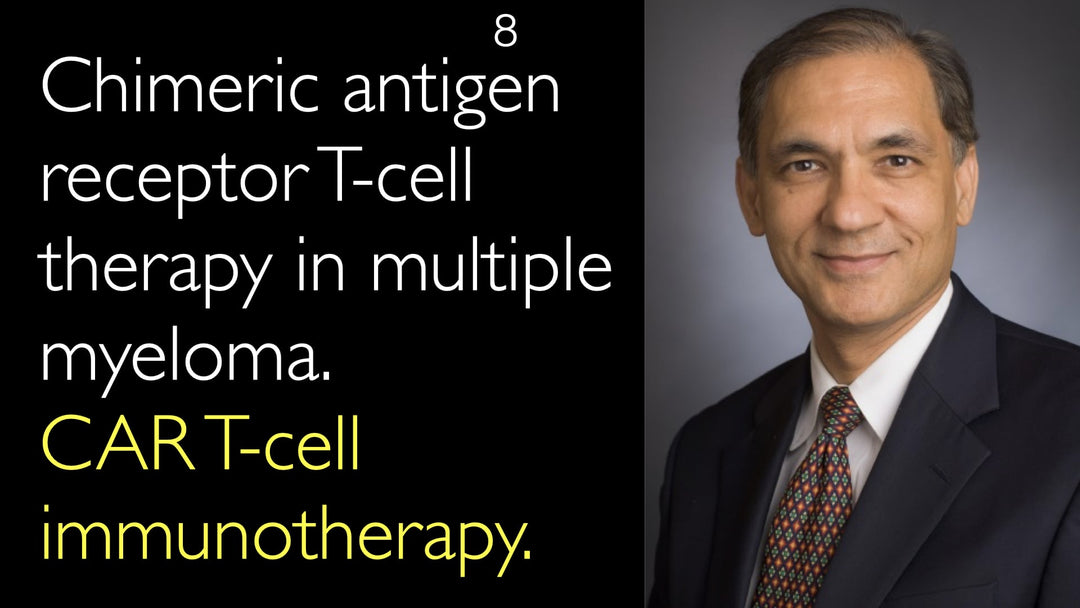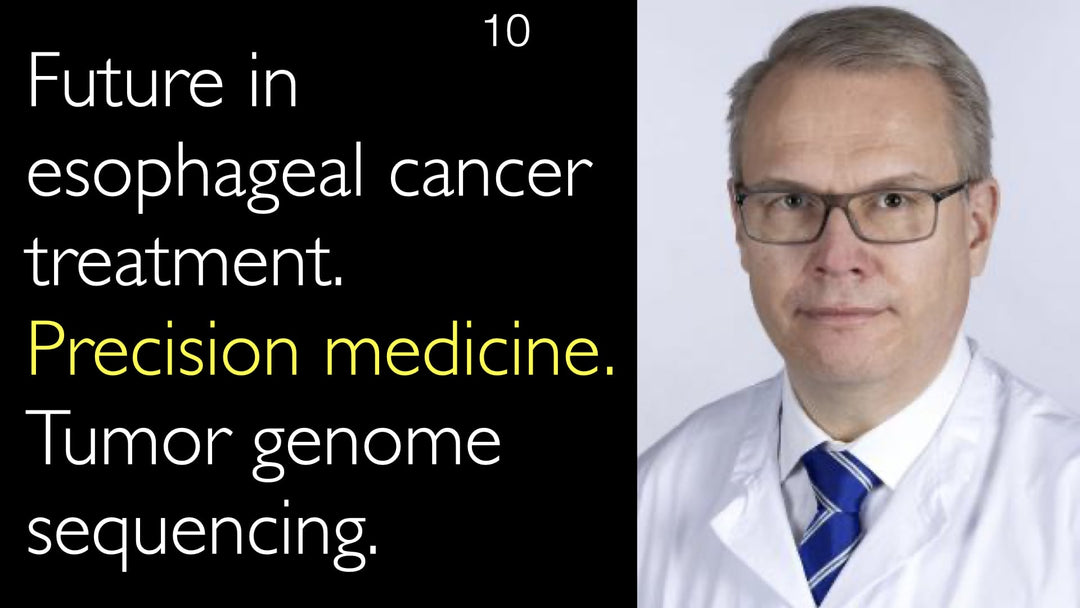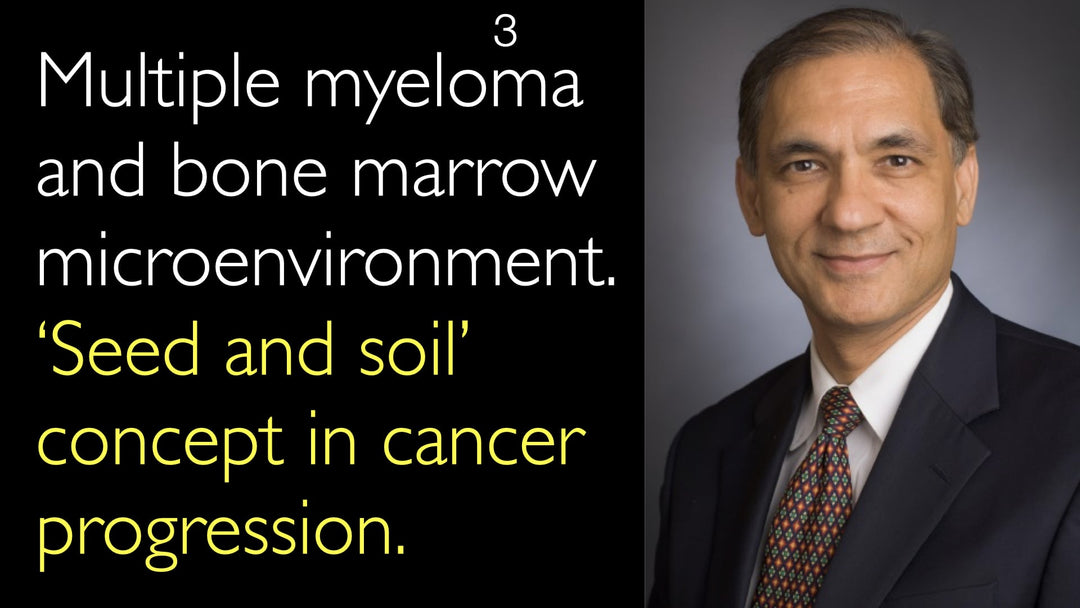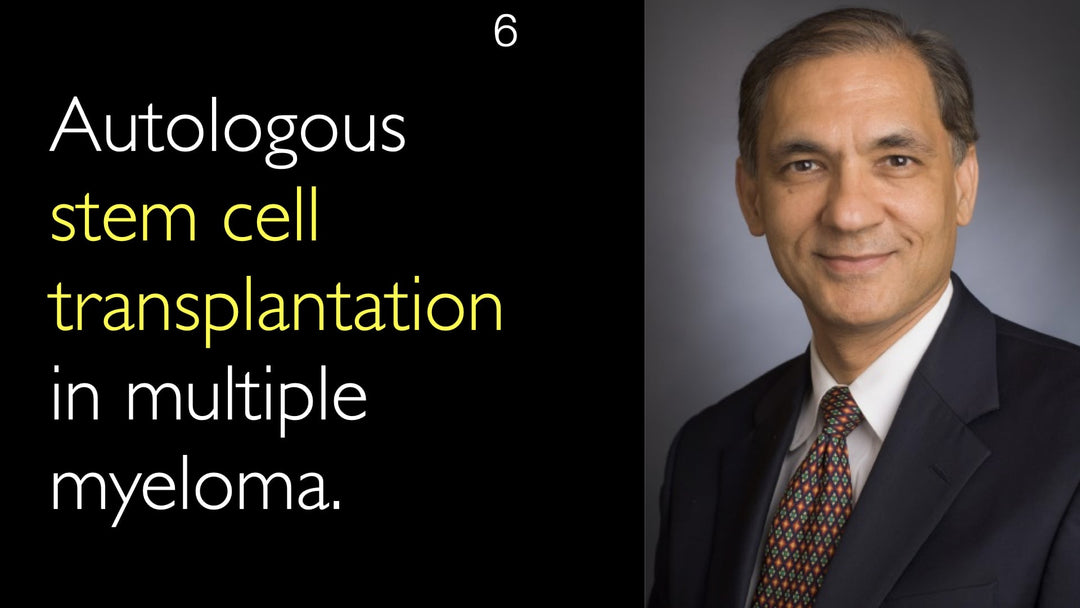Leading expert in multiple myeloma and immunotherapy, Dr. Nikhil Munshi, MD, explains how CAR T-cell therapy is revolutionizing treatment. He describes unprecedented response rates in late-stage patients. Dr. Munshi details deep and rapid remissions achieved with this cellular therapy. He discusses the rapid integration of CAR T-cells into the standard of care. The future includes using these powerful immunotherapies earlier in the disease course.
CAR T-Cell Therapy for Multiple Myeloma: Unprecedented Response Rates and Deep Remissions
Jump To Section
- CAR T-Cell Therapy Overview in Multiple Myeloma
- Unprecedented Response Rates and Depth of Remission
- Rapid Onset of Treatment Effects
- Shifting the Treatment Paradigm for Relapsed Myeloma
- The Future Treatment Landscape and Earlier Use
- Full Transcript
CAR T-Cell Therapy Overview in Multiple Myeloma
Dr. Nikhil Munshi, MD, a world-renowned expert in multiple myeloma, provides a powerful overview of chimeric antigen receptor T-cell therapy. He explains that CAR T-cell immunotherapy represents a monumental shift in how oncologists treat this plasma cell cancer. Dr. Nikhil Munshi, MD, states that after over 30 years of experience, he has never witnessed a treatment development with such profound effects. This cellular therapy involves genetically engineering a patient's own T-cells to recognize and attack myeloma cells expressing specific antigens, like BCMA.
Unprecedented Response Rates and Depth of Remission
The efficacy data for CAR T-cell therapy in multiple myeloma is extraordinary. Dr. Nikhil Munshi, MD, reports an overall response rate hovering between 90% and an astounding 98-99%, even in heavily pre-treated patients. Perhaps more importantly, the depth of these responses is remarkable. Dr. Nikhil Munshi, MD, highlights that approximately 80% of these late-stage patients achieve a complete remission. Furthermore, about 50% of patients achieve MRD negativity, which signifies no detectable cancer cells using highly sensitive testing. This indicates an incredibly deep and potentially durable remission.
Rapid Onset of Treatment Effects
A defining characteristic of CAR T-cell therapy is the speed at which it works. Dr. Nikhil Munshi, MD, emphasizes that responses are not only deep but also incredibly fast. He observes that clinical improvements can sometimes be seen within just two weeks of infusion. This rapid onset is a critical advantage for patients with aggressive or advanced disease who need a potent and swift therapeutic effect. The conversation with Dr. Anton Titov, MD, underscores how this rapid action contrasts with many traditional chemotherapy regimens.
Shifting the Treatment Paradigm for Relapsed Myeloma
CAR T-cell therapy is quickly becoming a standard component of the multiple myeloma treatment arsenal. Dr. Nikhil Munshi, MD, notes that within just two years, two different CAR T-cell products have received FDA approval. These immunotherapies are now considered the standard of care for specific populations of patients with relapsed and refractory disease. Dr. Munshi's discussion with Dr. Anton Titov, MD, confirms that these are not experimental concepts but are established, powerful tools changing outcomes for patients who have exhausted other options.
The Future Treatment Landscape and Earlier Use
The application of CAR T-cell therapy is rapidly expanding beyond the most advanced stages of multiple myeloma. Dr. Nikhil Munshi, MD, reveals that numerous clinical trials are actively investigating these therapies earlier in the treatment sequence. There are ongoing studies directly comparing CAR T-cell therapy with autologous stem cell transplant. Dr. Munshi predicts that these powerful cellular immunotherapies will soon be integrated into treatment plans for early-stage and middle-stage disease. He confidently tells Dr. Anton Titov, MD, that CAR T-cells will be a fundamental part of myeloma treatment before we know it.
Full Transcript
Dr. Anton Titov, MD: Professor Munshi, you are a world-renowned expert in the precision medicine treatment and immune response in multiple myeloma and new therapies. So, what is the role for immunotherapy and chimeric antigen receptor T cells, known as CAR T-cells, in the treatment of multiple myeloma?
Dr. Nikhil Munshi, MD: I have been treating myeloma for over 30 years and have been through all different treatment developments. I have not seen anything like what we have seen currently with CAR T-cell therapy.
The responses are incredible. They are fast and happen very quickly—sometimes within two weeks. In patients who are at a very late stage, they will get six, eight, and 10 different treatments before they come for CAR T-cells, and they all respond.
The overall response rate with CAR T-cell products has been at 90%, close to 98–99%, even at that late stage, with 80% of patients having complete remission and 50% of patients having MRD negativity. So, incredibly deep responses and frequency of responses are observed with CAR T-cell therapy.
Similarly, very encouraging results are also seen with bispecific antibodies. So, these very specific cellular or CAR T-cell and bispecific treatments are very quickly becoming a standard component of our therapeutic intervention.
It's moving so fast. In two years, two cellular therapies are already approved and are becoming standard of care for treatment in relapsed patient populations. And we have a number of studies with these CAR T-cells being utilized earlier on.
There are studies ongoing that compare CAR T-cell therapy with transplant and some other interventions. So, these treatments are becoming standard therapeutic components for myeloma treatments at an early stage, as well as middle and late stages of the disease. They'll be part of our treatment before we know it.







